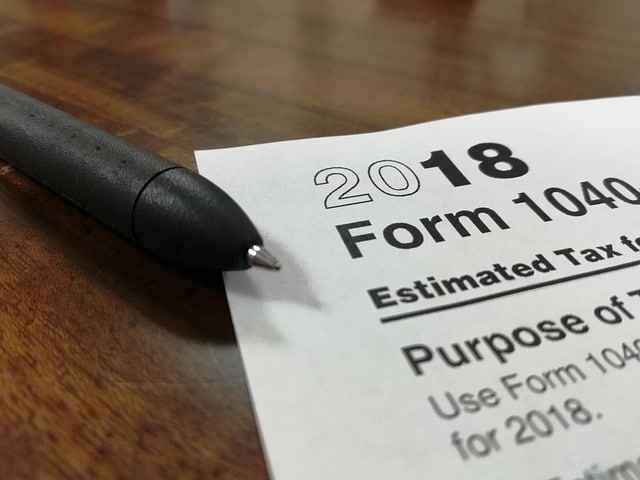
25 Financial Assistance Programs for Seniors
15 million seniors aged 65+ are economically insecure – and many more worry they don’t have enough to make it through retirement. With high costs of healthcare, housing, and food, seniors may need an extra hand to cover their basic needs.
Fortunately, financial assistance programs are helping to bridge this gap so that seniors can age with dignity. Many seniors are eligible for these programs, including those for general aid, housing, food, and more. To find out more, check out our guide to financial assistance programs for seniors below.
General financial assistance programs
These 4 governmental aid programs offer seniors monthly stipends based on different financial criteria:
1. Social Security
Seniors aged 62+ who have worked at least 10 years are eligible for Social Security benefits, which allow recipients to use the funds to cover any of their expenses. The stipend varies according to your past salary and number of years you worked. According to the Social Security Administration, the average Social Security benefit was $17,500 per year (in 2019).
2. Supplemental Security Income (SSI)
Low-income seniors aged 65+ may qualify for extra financial aid, called Supplemental Security Income. Seniors must earn less than $2,000 per month (single) or $3,000 per month (married), and have little to no assets or savings.
3. Temporary Assistance for Needy Families (TANF)
The Temporary Assistance for Needy Families is intended to help needy families achieve self-sufficiency. Qualifying families must have children under the age of 18 living with them. If you’re a senior raising a grandchild, for example, you may qualify for TANF assistance.
4. Tax Credit for the Elderly
Seniors can also get certain credits when filing taxes. Elders aged 65+ receive a tax credit based on their income, which can range between $3,000-$8,000.
Housing-related financial assistance programs
Another key area for seniors is getting help with housing. These 6 government programs focus on aid for housing-related costs.
1. HUD Public Housing Program
HUD – which stands for the Department of Housing and Urban Development – runs a rental aid program for low-income individuals, including seniors. The cost of rent is reduced to 30% of the senior’s income. While this program has a long waitlist, it’s essential for many seniors to secure housing.
2. Housing Choice Vouchers Program (HCVP)
HCVP is another rental aid program that allows families and seniors to live in privately owned housing at a reduced rate, typically 30% of the individual’s income. This gives seniors a choice in their housing, while still keeping the rental rate low according to income level. This program also has a long waitlist.
3. Section 202 Supportive Housing for the Elderly
Section 202 housing is available for seniors aged 62+ who are low-income, or for families with at least one senior member. HUD provides advances to housing providers to develop supportive housing for the elderly. These spaces are designed for the elderly and involve rent subsidies.
4. Section 504 Home Repair Program
Through the Section 504 Home Repair Program, senior homeowners can obtain special grants and loans to make home repairs. These repairs ensure the home is safe and senior-friendly, allowing elders to age in place. Grants and loans vary in amount. Typically, grants may be offered up to $7,500 and loans up to $20,000.
5. Low Income Home Energy Assistance Program (LIHEAP)
LIHEAP helps families make their homes more energy efficient, which in turn lowers costs. This program not only covers heating and cooling costs, but also weatherization and repairs to make the home more insulated. Low-income seniors can qualify to receive help updating their homes and aging in place.
6. Weatherization Assistance Program
This program is aimed at making home appliances more energy efficient, especially gas, electric, and water bills. Priority is given to adults with disabilities or seniors aged 60+.
Food related financial assistance programs
Programs for seniors are also focused on providing food aid. For seniors who are food insecure, these 4 programs can make a difference.
1. Supplemental Nutrition Assistance Program (SNAP)
SNAP provides low-income individuals and seniors a monthly stipend that can be redeemed at grocery stores. Beneficiaries are given a debit card specifically for food purchases.
2. The Emergency Food Assistance Program (TEFAP)
TEFAP goes beyond groceries and provides canned and fresh food for low-income individuals and seniors. This program works with food banks and soup kitchens to provide food and meals.
3. Commodity Supplemental Food Program (CSFP)
CSFP is run by the Department of Agriculture and provides a monthly box of food to low-income seniors aged 60+. The food package is intended to help seniors cook healthy meals.
4. Seniors Farmers Market Nutrition Program (SFMNP)
If you’re a senior who purchases food at farmers’ markets, then the SFMNP is ideal. This program gives seniors coupons to use with vendors selling fresh foods (other types of foods don’t qualify).
Other financial assistance programs
Lastly, the government offers a few more aid programs for other types of needs:
1. Lifeline Program
The Lifeline program provides low-income families and seniors with low-cost phone and internet services through a discount. This discount is typically $9.25 per month per household and can be applied to phone and internet services.
2. Senior Community Service Employment Program
This program aids unemployed and low-income seniors with work training and job placement assistance at a non-profit or public organization. Run by the Department of Labor, it’s a great opportunity for seniors who still want or need to work.
3. Veterans Benefits
If you’re a veteran, you also are eligible for a range of benefits including healthcare, housing, loans and more. Check out our full guide to veterans benefits here.
4. Statewide financial assistance programs
Depending on your place of residence, your state may also provide different aid programs. Be sure to check if any statewide programs are available for your location. You can use this state-specific guide from the AARP to get information.
Bonus: private-run financial assistance programs
In addition to the government programs listed above, there are many private organizations for seniors who need financial assistance. These include:
- AARP is a senior advocate group that provides many senior resources and services.
- Volunteers of America is a nonprofit focused on helping the most vulnerable populations. They offer affordable housing and other assistance services primarily to low-income people. For seniors, they provide food aid, transportation, Medicare help, nursing care and more.
- National Shared Housing Resource Center is a network of non-profit shared housing programs. They partner seniors with roommates. In turn, these roommates pay board and help with chores, so that seniors can more easily age in place.
- Meals on Wheels delivers meals to seniors aged 60+ to address their hunger and isolation. These meals are intended for seniors who are unable to purchase or prepare meals on their own.
- Retirement Jobs helps skilled seniors 50+ get placed with companies. They offer advocacy and advice for seniors, including job matching and resume critiques.
- Senior Companions is a volunteer program from AmeriCorps that provides basic assistance and friendship to older adults. The volunteers are seniors themselves (aged 55+).
- Senior Paws for Pets is a part of the Meals on Wheels Program and helps deliver pet food to seniors who need help feeding their dog or cat.
You should also look up local resources for your area. Some local nonprofits or advocacy groups may provide aid to seniors based on their financial need or personal profile. For example, seniors may be able to get legal aid from Elder Justice, while LGBT seniors may qualify for resources from SAGE.
Final takeaway
Millions of seniors struggle to make ends meet. With these financial assistance programs, including general aid, housing, food and more, you can better receive the help you need.
If you’re looking for more senior resources, check out our comprehensive resources guide – including caregiving, transportation and more. We wish you and your family the best during this difficult financial moment.
| General – Social Security – Supplemental Security Income (SSI) – Temporary Assistance for Needy Families (TANF) – Tax Credit for the Elderly | Housing – HUD Public Housing Program – Housing Choice Vouchers Program (HCVP) – Section 202 Housing Section 504 – Home Repair Program – Low Income Home Energy Assistance Program (LIHEAP) – Weatherization Assistance Program |
| Food – Supplemental Nutrition Assistance Program (SNAP) – The Emergency Food Assistance Program (TEFAP) – Commodity Supplemental Food Program (CSFP) – Seniors Farmers Market Nutrition Program (SFMNP) | Other – Lifeline Program – Senior Community Service Employment Program – Veterans Affairs (VA) – State-wide programs |
Sources:
- Economic Security for Seniors, NCOA, www.ncoa.org
- Your Guide to Public Benefits, AARP, www.aarp.org
- How Grandparent Can Access Support through the TANF Program, American Bar Association, www.americanbar.org
- Benefits for Older Adults, NCOA, www.ncoa.org
- Guide to Benefits for Seniors, Area Agencies on Aging, www.n4a.org
Related Articles

Can a Nursing Home Take All Your Assets?
This article has been reviewed by a practicing attorney in 2020 This content is not intended to be a substitute for professional legal advice. Always seek the advice of an attorney or another qualified legal professional with any questions you may have regarding your situation. A growing number of United States residents are seeking long-term […]

Bridge Loans for Seniors
Making the transition from everyday activities of working life to retirement can be difficult for individuals regardless of their age or situation. In addition, seniors’ lives can often include moving to a new state, home, or living facility, among other changes that can put a serious financial strain on them. If you are someone who […]

25 Financial Assistance Programs for Seniors
15 million seniors aged 65+ are economically insecure – and many more worry they don’t have enough to make it through retirement. With high costs of healthcare, housing, and food, seniors may need an extra hand to cover their basic needs. Fortunately, financial assistance programs are helping to bridge this gap so that seniors can […]

Irrevocable Trust Taxes
This article has been reviewed by a practicing attorney in 2020. This content is not intended to be a substitute for professional legal advice. Always seek the advice of an attorney or another qualified legal professional with any questions you may have regarding your situation. The irrevocable trust is a common estate planning tool. While irrevocable […]

How to Pay for Assisted Living
Assisted living can be an excellent option for you or a loved one, providing necessary daily support and social connections. However, figuring out how to pay for this senior housing option can be a challenge. Unlike nursing care, assisted living is not covered by Medicare, so alternative payment methods must be considered. Let’s explore the […]

A Guide to Veteran Benefits for Senior Living
Here at MyCaringPlan, we get a lot of questions from senior veterans looking for long-term care facilities. Often they ask us, “I’m a veteran, can that help me get senior housing?” The answer is absolutely yes. Elder veterans may qualify for an extra hand with their senior living options – whether an assisted living facility, […]